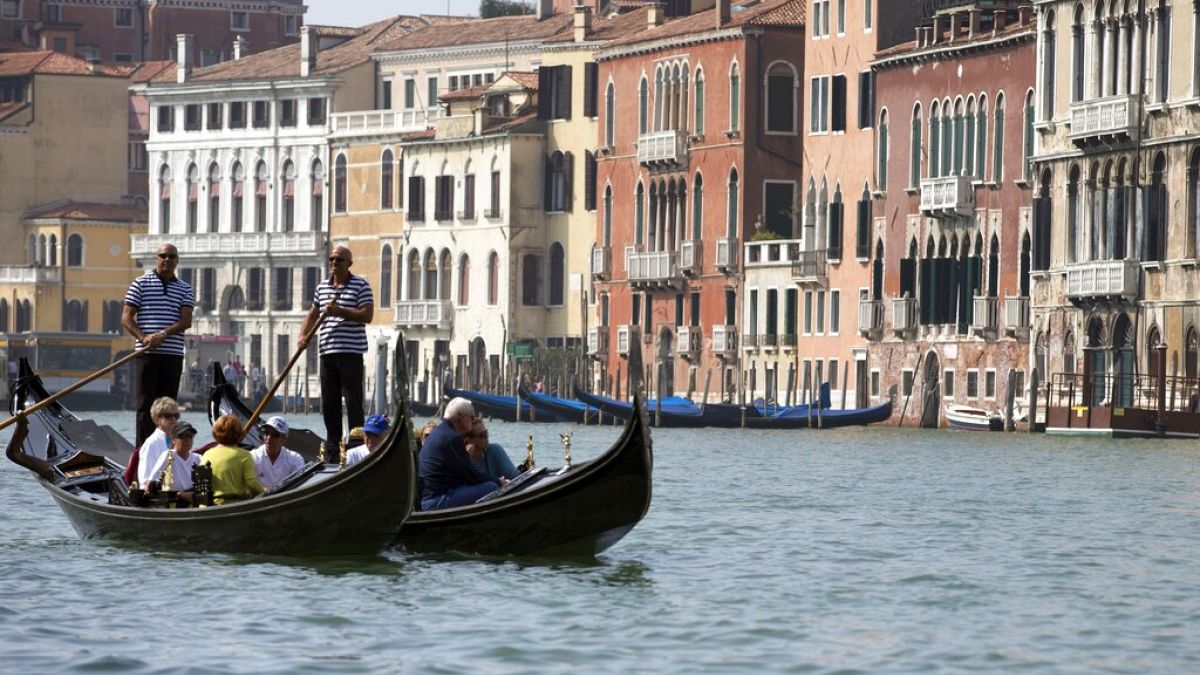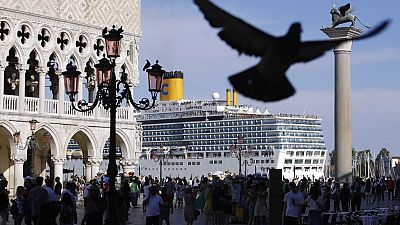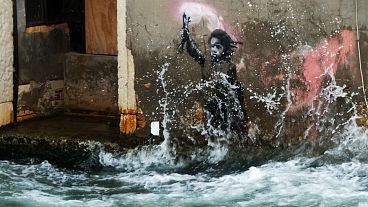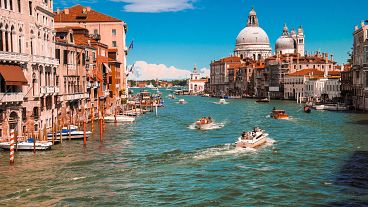The iconic Italian city will restrict tour group sizes as part of its mission to regulate huge crowds and improve local life.
The Italian city of Venice has announced new limits on the size of tourist groups - the latest move to reduce the pressure of mass tourism on the famed canal city.
Starting in June, groups will be limited to 25 people - or roughly half the capacity of a tourist bus.
The use of loudspeakers, “which can generate confusion and disturbances,” will also be banned, the city said in a statement.
The city official charged with security, Elisabetta Pesce, said the policies were aimed at improving the movement of groups through Venice’s historic centre, as well as the heavily visited islands of Murano, Burano and Torcello.
They also aim to make life better for those who live and work in the city.
The measures still need to be examined by the city council but if approved they will be implemented on 1 June.
How else is Venice managing crowds?
The city previously announced plans to test a new day-tripper fee. The €5 per person charge will be applied on 29 peak days between April and mid-July, including most weekends. It’s intended to regulate crowds, encourage longer visits and improve the quality of life for Venice residents.
The UN cultural agency cited tourism’s impact on the fragile lagoon city as a major factor in it twice considering placing Venice on UNESCO’s list of heritage sites in danger.
The city escaped the first time by limiting the arrival of large cruise ships through the Giudecca Canal and again in September when it announced the roll-out of the day-tripper charge, which had been delayed when tourism declined during the COVID-19 pandemic.



